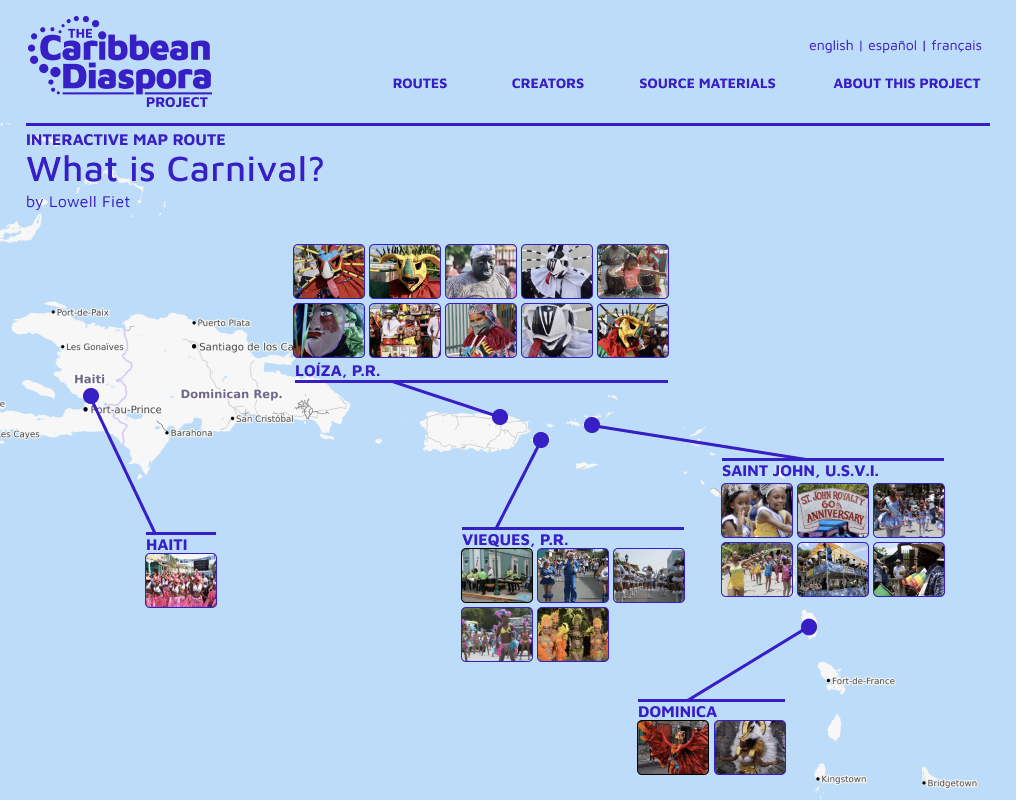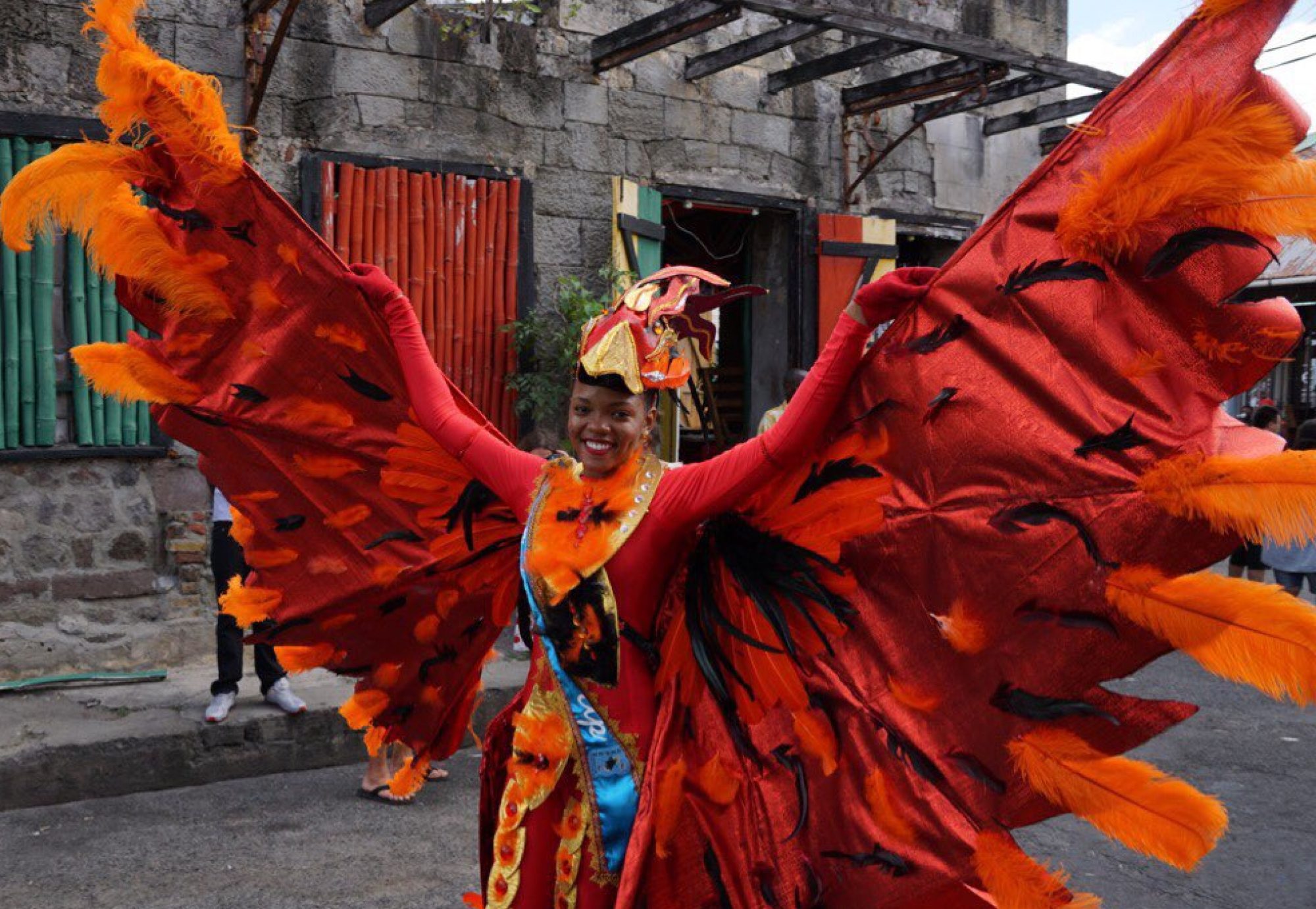Caribbean carnival and festival traditions represent the intermingling (syncretism) of New World, Old World, African, and Asian religious and secular celebrations that revolve around processions, masks, masquerade characters, music, song, dance, feasting, drinking, and sensuality. But what is “carnival”? Bacchanal or religious devotion, saturnalia or the purgation of the flesh, sacred or profane, a source of cultural resistance or a “bread and circus” escape valve, a creative, life-affirming eruption of kinesthetic energy or exoticism, folkloric nostalgia, commercial (and political) cooptation, and tourist revenue.
The pre-Lenten carnivals in Port of Spain, Rio de Janeiro, and New Orleans serve as examples of historical and contemporary practices, but the full range of Caribbean carnival arts covers the annual calendar and the nearly every island or littoral Caribbean society: the Jonkonnu traditions in Jamaica and the Bahamas; the pre-Lenten carnivals of Port au Prince and Jacmel in Haiti; the numerous carnival-independence celebrations from February through April of the Dominican Republic; Crop Over in late July in Barbados; pre-Lenten Carnival in Ponce, the Fiestas of Santiago Apóstol (St. James) in July in Loíza, and the Feast of the Innocents in late December in Hatillo, Puerto Rico; the Festival of Fire in Santiago and July Carnival in Santiago and Havana, Cuba; three separate carnivals with different dates in the US Virgin Islands of St. Thomas, St. Croix, and St. John; and so many others that it is difficult to name them all. Even smaller islands such as Vieques, Puerto Rico and the Grenadine island of Carriacou have distinctive carnival traditions.
Regardless of differing attitudes and beliefs about the meaning and function of Caribbean carnivals, another possibility presents itself: does Carnival, in the sense of masking or masquerade, present an educational paradigm that is both critical and celebratory, a duality that renders it as openly participatory and democratic, dynamic and transformative, multi-aesthetic and intercultural?
This pilot micro-project (which offers a panoramic view to carnival practices in the Caribbean and, for now, includes images for Puerto Rico and the US Virgin Islands) was created by Lowell Fiet, PhD, a retired professor from the English and Drama Departments of the College of Humanities at the University of Puerto Rico–Río Piedras Campus. He is the founding editor of Sargasso: a Journal of Literature, Culture and Languages of the Caribbean. His most recent books are An Archipelago of Caribbean Masks (2019), Caballeros, Vejigantes, Locas y Viejos: Santiago Apóstol y los performeros afro-puertorriqueños (2007) and El teatro puertorriqueño reimaginado: Notas críticas sobre la creación dramática y el performance (2004). Former director of the Institute of Caribbean Studies, Fiet’s scholarship addresses topics related to Carnival, Theater and Performance in Puerto Rico, the Hispanic, Eastern and French Caribbean, and his work is well known throughout the whole Caribbean region. He has been a recipient of prestigious fellowships and grants among them: Rockefeller Foundation fellowship, and has twice directed a National Endowment for the Humanities Summer Institute.


